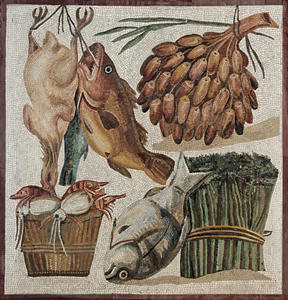Augustus Caesar (Octavian)
- Born in Rome, Italy On September 23, 63 BC
- Reigned in Rome from 27 BC- 14 AD
- Became leader at the age of 18 after his uncle was assassinated
- Gave up all his military power in 27 BC
- Parents were Gaius Octavius and Atia Balba Caesonia
- Had 3 wives; Clodia Pulchra (42 BC- 40 BC), Scribonia (40 BC- 38 BC), and Livia (37 BC- 14 AD)
- Had one biological child (With Scribonia) named Julia, and four adopted children named Tiberius, Gaius, Agrippa, and Lucius
- Died on August 19, 14 AD of illness
Achievements
- 44 BC: Octavian is named as the heir of Rome (First Roman Emperor)
- Defeated Cleopatra and Antony at the battle of Actium in 31 BC
- Appointed Senator and propraetor
- Revised the membership of the Senate
- Elected Consul at the age of 19
- Formed the second Triumvirate
- Expanded the borders of the Empire
- Rebuilt Rome into a city of marble
Cause of Death
- Augustus died as a result of old age and failing health
Historical Significance



